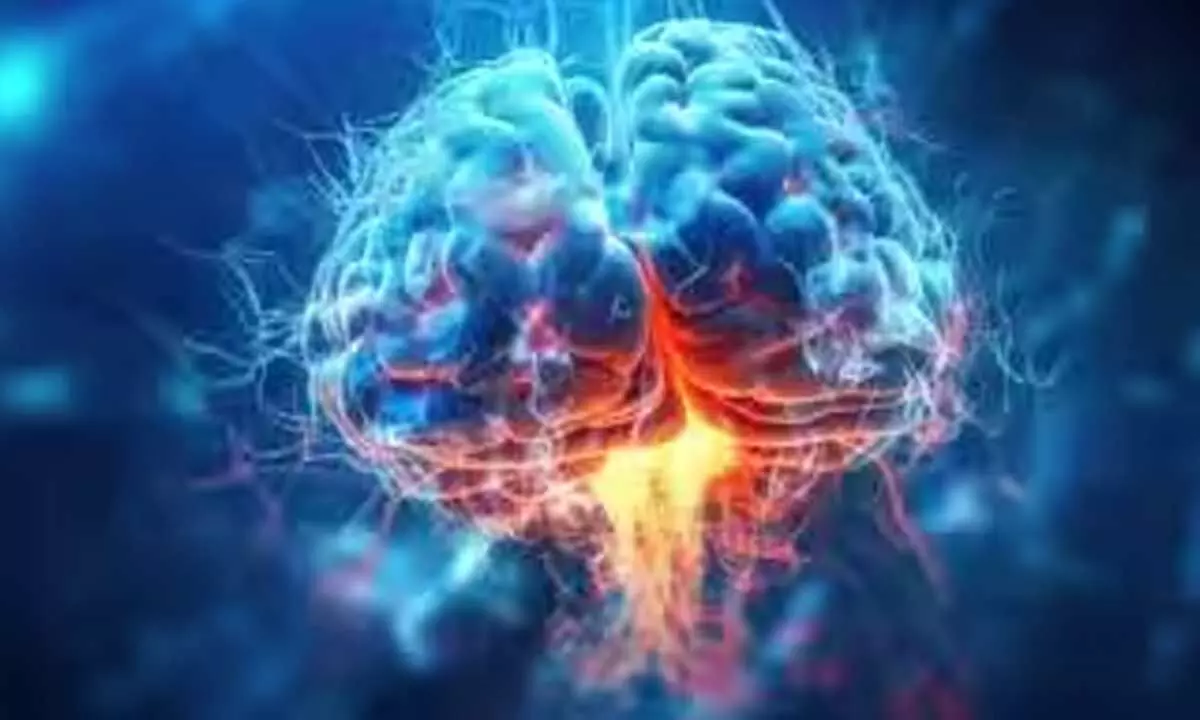Live
- Monitor investments, creation of jobs: CS
- Hyderabad: City-based Karaoke group feted by Rafi family
- Rachakonda sees uptick in murders, kidnappings; overall crime rate rises
- Hyderabad: Police bust drug racket, three land behind bars
- HC extends Sengar’s interim bail till Jan 20
- Foundation stone laid for drinking water pipeline
- Hyderabad: Fake tea powder unit busted, stocks worth Rs 1.2L seized
- Mastermind of kidnapping gang targeting celebrities arrested
- Khanapur: Temples celebrate their anniversaries grandly
- Ensure 100% enrolment of women into SHGs, urges Collector
Just In
National Epilepsy Day 2023: Date, history, significance; types of seizures


An epileptic seizure can occur suddenly and can be very distressing for the person experiencing it, as they have no control over the movements, the sounds they make or the sensations they feel.
An epileptic seizure can occur suddenly and can be very distressing for the person experiencing it, as they have no control over the movements, the sounds they make or the sensations they feel. Epilepsy is a brain disorder that can cause seizures due to abnormal brain activity or temporary changes in the electrical functioning of the brain. According to the American Association of Neurological Surgeons, the brain continually generates small electrical impulses in an orderly pattern that travel along the brain's network of nerve cells. In epilepsy, these electrical rhythms become unbalanced and the normal electrical pattern is interrupted by sudden, synchronized bursts of electrical energy that can briefly affect your consciousness, movements or sensations.
Epilepsy can be of many types and, consequently, the symptoms can vary. According to Mayoclinic, some people may lose consciousness during a seizure, while others may stare blankly for a few seconds. People may also twitch their arms or legs (movements known as seizures) in some types of epilepsy. Many famous people have battled epilepsy, from Sir Isaac Newton, Charles Dickens, Elton John, Neil Young, Martin Kemp to Richard Burton.
Date of National Epilepsy Day
National Epilepsy Day is celebrated every year on November 17 in India to raise awareness about epilepsy and also its impact on individuals, families and society.
History and meaning of National Epilepsy Day
The day was first observed by the Epilepsy Foundation of India and was established by Dr. Nirmal Surya. The aim of this day was to help people in need who cannot afford treatment for the disease and also to dispel the myths surrounding epilepsy, raise awareness about the symptoms and treatment of the disease.
According to WHO, around 50 million people worldwide are affected by epilepsy and India accounts for 10 to 20 percent (5 to 10 million) of the global epilepsy burden. About 70 percent of people with epilepsy can successfully control seizures with medications and certain types of surgery.
Types of epileptic seizures
Seizures can be classified into two broad categories based on the location of the abnormal brain activity. A seizure in one part of the brain is called a focal seizure and is usually accompanied by loss of consciousness, while in the case of generalized seizures, all areas of the brain are involved.
Focal seizures
Focal seizures can temporarily alter emotions or sensations and cause involuntary shaking or tingling in a part of the body, dizziness, or flashing lights. In some types there may be altered consciousness and the affected person may stare into space or not respond normally or perform repetitive movements such as rubbing their hands, chewing, swallowing or walking in circles.
Generalised seizures are of the following types:
*Absence seizures are characterized by staring into space or subtle body movements, such as blinking or smacking the lips.
* Atonic seizures, also known as drop seizures, cause a loss of muscle control, which can lead to a fall.
* Clonic seizures are associated with jerky, repetitive or rhythmic muscle movements of the neck, face and arms.
*Myoclonic seizures usually appear as sudden, brief jerks or twitches of the arms and legs.
* Tonic-clonic seizures can cause an abrupt loss of consciousness, body rigidity, tremors, and sometimes loss of bladder control or tongue biting.

© 2024 Hyderabad Media House Limited/The Hans India. All rights reserved. Powered by hocalwire.com






